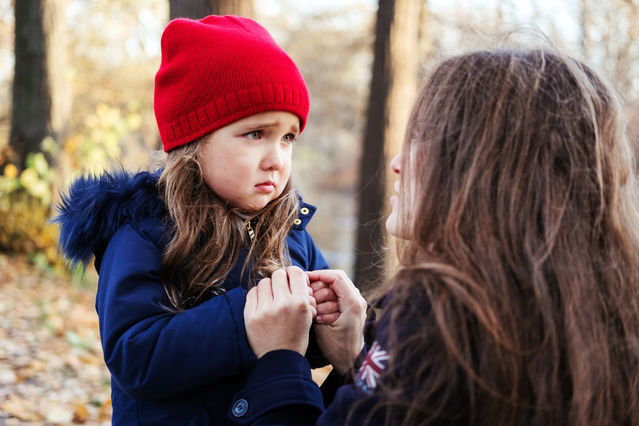Sexual Abuse
When Children Say #MeToo
The nuances of responding to children's disclosures of sexual abuse.
Posted May 19, 2019

"Doctor, I think something terrible may have happened to my child." I listen to the shaky voice on the other end of the phone line. This time, the child is seven and showing sudden symptoms of sexual abuse. He has begun to wet the bed at night and get into trouble at school. He has been dragging his blanket and pillow into his parent's room at night, complaining of nightmares and genital itching. I recognize the sound of fear and panic in the next question, "What if he's been hurt? I don't think I can handle it." It is not the first call like this that I have received in just this month alone. It is one of hundreds that I have fielded over the course of my work with child survivors of trauma.
I have found that these tips have resonated for some of my clients in those first moments and days after a child's disclosure:
1. Know that your words matter. When a child entrusts you with their truth about sexual abuse, you become a part of their narrative. That is a big responsibility. One that can be especially daunting when the story you have heard seems incomprehensible. You may feel unable to think clear thoughts. You might want to scream, or cry, or take immediate action. You may want to ask how, or why, or when the abuse happened. These are normal reactions to hearing shocking news. But in that first moment, all that matters is the child before you. The first response that you provide can have a significant impact on the trajectory of the child's healing. Make sure your response feels more like a warm, safe, empathic embrace than anything else.
2. Say, “I believe you”. You may want to deny it happened. And maybe later, you will go on a quest to determine what actually occurred. The truth is, less than 1% of child sexual abuse allegations are later found to be intentionally false reports (United States Department of Health and Human Services, 2018). When a child tells you that something terrible has happened, listen. Know that they are most likely struggling to find the words with which to communicate shards of fragmented pain (Yehuda, 2015). They may already be feeling terror, shame, and guilt by the time they speak. They may have been silenced by a perpetrator who used threats of harm or public humiliation. At the moment of disclosure, children need to hear that we believe them, and we are not angry at them.
3. Do not ask leading questions. I know it is tempting to try to get as much information as possible. It is ok to say “can you tell me more about this?” But absolutely do not ask any who, what, where, when or how questions. These questions can contaminate a later investigation and may impact your ability to press charges against the person responsible for hurting the child. This is especially important when the alleged perpetrator is the child's parent. Research has shown that over 90% of perpetrators of child sexual abuse are known to the child (rainn.org). If you ask too many questions, you may later be accused of implanting ideas in the child’s mind. If you are the child's non-offending parent, you may become vulnerable to later accusations of parental alienation, which may impact your ability to effectively protect your child. During the moments, hours, and days following disclosure, do your best to avoid asking any leading questions.
4. Do not blame yourself. Sexual abuse can happen to anyone. As much as we may wish we could implant children with devices that track their every move, or even better, just keep them in a giant bubble until they are old enough to defend themselves, this would instill fear in their developing minds. Remember that had you known what would happen, you would never have allowed the child to get into what turned out to be a dangerous situation.
5. Seek help. Find a professional who can help you handle this. If you have any reason to believe that the child may be in imminent danger, call your local police department (to report alleged perpetrators that are not family members) or child protective service agency (to report perpetrators who are family members or caregivers). You can reach out to the Childhelp National Child Abuse Hotline at 1.800.4-A-CHILD (1.800.422.4453) for information and resources. Once you have established that the child is safe and protected from further abuse, consider looking for a psychotherapist who has expertise in treating childhood trauma. There are excellent resources available at www.ISST-D.org and on www.psychologytoday.com.
6. Know that there is hope. Sexual abuse is not an emotional death sentence. Children are incredibly resilient and they CAN heal. The healing process may involve a combination of trauma-focused treatments such as somatic therapies, expressive arts therapies, and talk therapies. The good news is that the field of trauma treatment has become highly sophisticated. There are many researchers and therapists who have spent years finding the most gentle and effective ways to help children cope with trauma. Children can emerge from this experience as confident and whole individuals.
7. Look out for signs of secondary trauma. If you have experienced any sort of trauma over the course of your own life, you may feel your body and mind reacting in ways that feel dreadfully familiar. You may begin to have nightmares, flashbacks, anxiety, or somatic symptoms. You might feel as if the abuse you have been told about is happening to you, and that you can see it play out in your mind over and over again. Even without a trauma history of your own, you may feel overwhelmed by the information with which you have been entrusted. You may want to consider finding a therapist of your own to help you manage your feelings.
Most important, don’t panic. Breathe. The road ahead may involve making decisions and seeking resources. The child before you will need a calm and rational adult presence. It may help to take a moment to envision the child as a stable and happy adult, one who knows how to set boundaries and knows how to live and love and succeed. Can you see that in your mind’s eye? Breathe into that. And then take the steps that you know are needed to get there.
References
Children and Teens: Statistics. Retrieved May 17, 2019, from https://www.rainn.org/
United States Department of Health and Human Services, Administration for Children and Families, Administration on Children, Youth and Families, Children’s Bureau. Child Maltreatment Survey, 2017 (2018).
Yehuda, N. (2015). Communicating trauma. Taylor & Francis.


